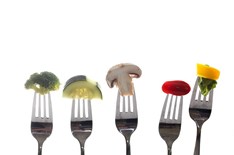
It is still possible to patent new plants. The European Patent Office (EPO) has not complied with a request by, among others, civil-society organisations such as Greenpeace and No Patents On Seeds to ban patents on plants.
For a long time now it has been normal for growers to apply for, and be granted, a patent on new plants with an interesting property which has come about through crossbreeding and selection. This makes it possible, for example, for plants to be made resistant to certain plant diseases or for those intended for human consumption to contain fewer harmful substances.
Principle
After the granting, a couple of years ago, of a patent for tomatoes with a low water content and broccoli which generates higher levels of an anti-cancer substance, an objection was filed with the EPO. Civil-society organisations called on the EPO not to grant a patent on plants. They based their request on the principle that patents cannot be granted for food. The Enlarged Board of Appeal of the EPO does not, however, see any reason for banning plant patents.
Relief
According to Robbert-Jan de Lang, Dutch and European patent attorney at EP&C, the EPO judgement has caused widespread relief in the international plant-breeding industry. “Crops are usually bred to make plants healthier or tastier for consumers and to increase yields. Crossbreeding such properties into a certain plant is a very time-consuming and labour-intensive process. It is crucially important to breeders that they can, in time, recoup the huge investments involved by means of patents”, Robbert-Jan adds.









